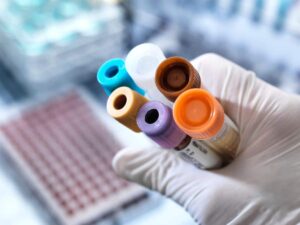
Healthcare providers, scientists and biopharmaceutical companies are all realizing that personalized medicine is the next step in the evolution of patient care. Not only can it treat individuals' illnesses more effectively, but it can do so while minimizing the likelihood of side effects. These dynamics will improve patient outcomes while curbing healthcare expenses.
One ongoing challenge for the development and evaluation of personalized medicine is the availability of biospecimens. Researchers continually report that the difficulty of accessing the quality and quantity of biospecimens impacts their research. Specifically:
- 39 percent of scientists have difficulty accessing the number of biospecimens their research requires
- 40 percent of cancer researchers have trouble obtaining the quantity of biospecimens they need
- 80 percent of scientists have a hard time securing access to high-quality biospecimens
Fortunately, iSpecimen helps scientists find the specimens they need for their research programs by making available millions of clinical remnant specimens that currently flow through healthcare systems. The company has forged partnerships with healthcare providers so that their remnant specimens may be repurposed into research once they are no longer needed for clinical purposes. iSpecimen enables this process by using proprietary technology that watches the flow of specimens in laboratories along with their de-identified medical records for specimens that match very specific research criteria. Once found, the technology instructs healthcare providers to pick and ship the specimens to researchers instead of discarding them as usual.
The patients who donate these samples make valuable contributions to medical science that may help them, their families and patients like them; healthcare providers gain a revenue stream from their clinical waste that can be put back into the healthcare system to improve patient care; and scientists secure a steady supply of high-quality and highly-customized biospecimen collections.